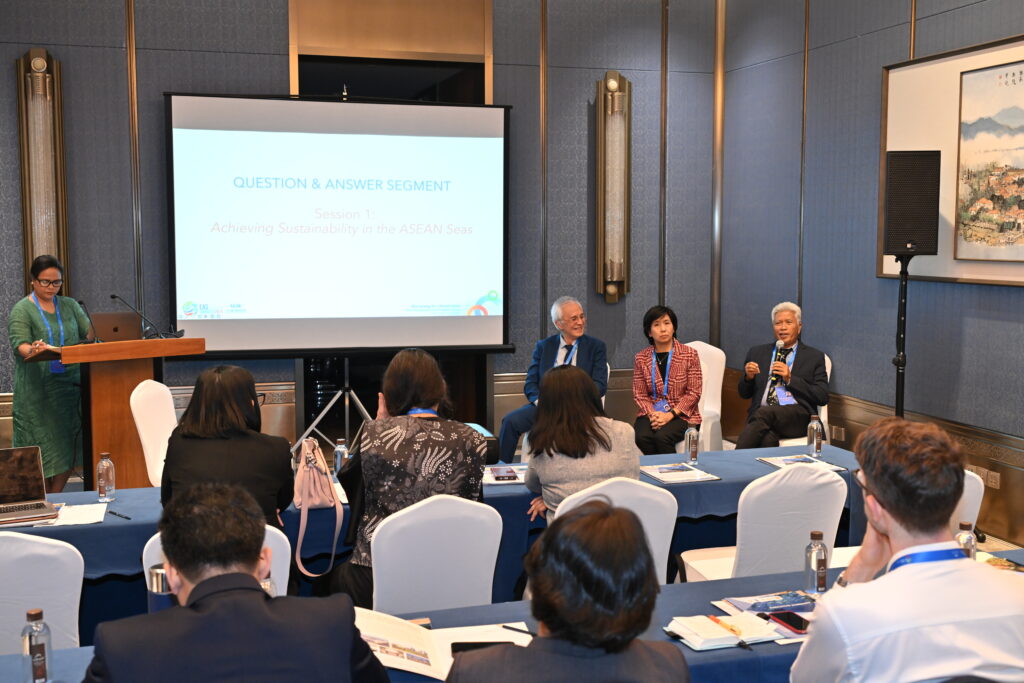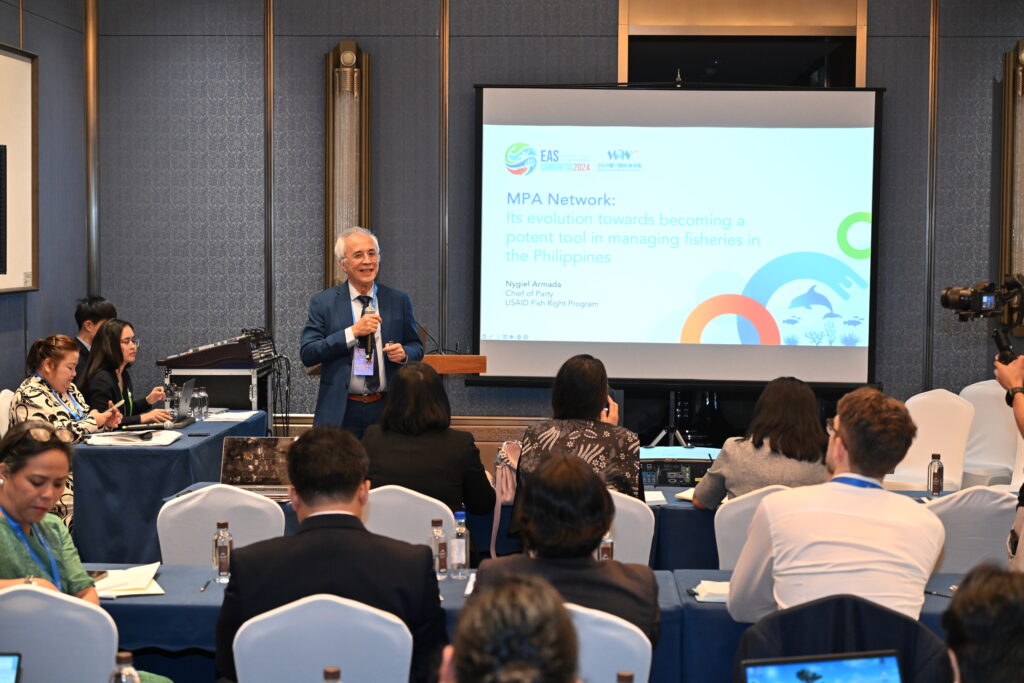ST 2.10

Speakers from the “Achieving Sustainability in the ASEAN Seas” session gathered to discuss advancing Marine Protected Areas, sustainable fisheries, and youth engagement for resilient coastal and marine ecosystems across ASEAN.
“We need a story, not just theory,” said Dr. Suchana Apple Chavanich, emphasizing the urgency of proactive action at the EAS Congress session entitled ‘Achieving Sustainability Through Connectivity for Resilient ASEAN Seas.’
Speaking about the importance of Marine Protected Area (MPA) management, presenter Chavanich underscored how individuals and effective science communication, not just policies, drive the collective success of MPAs.
According to Ketut Putra, understanding the science behind the ecological connectivity of the ocean and collaboration efforts can help us embrace and optimize the full economy and sustainability of the ocean for human well-being, even beyond political boundaries. He shared lessons to integrate science with practical, on-the-ground initiatives that resonate with local communities.
For Nygiel Armada, the best chance of achieving the ‘30 by 30’ goals is always to consciously be mindful of connectivity.
Sapawan “Ploy” Ponlaboot also emphasized the role of the youth in sustainability, highlighting that the youth should not only be stakeholders but partners, with meaningful participation on biodiversity policymaking. She advocates for the youth not only to be stakeholders but partners, with meaningful participation on biodiversity policymaking.
According to Sheila Vergara, the ASEAN ENMAPS project applies a transformative and science-based management of MPA networks to achieve, in the long term, fully functional and resilient LMEs.
Vincent Hilomen emphasized that on the survival and sustainability of metapopulations on an MPAN are dependent on its management effectiveness as well as in those of other adjacent MPANs as larval import from outside areas is required to sustain populations.
Lastly, Claudia Binondo emphasized the ‘5Cs’ – connectivity, collaboration, collective leadership, champions and communication – as pillars of sustainable MPA management. This session aligns with Action 2 of the Xiamen Ministerial Declaration by considering science-based data and information to support planning and policy development, as well as using innovative technology to protect marine resources.

Speakers gathered to discuss how MPA stories should be engaging and beneficial to communities, and how stories should be packed to meet the audience’s needs to integrate science to reality on the ground where they could make a change.
